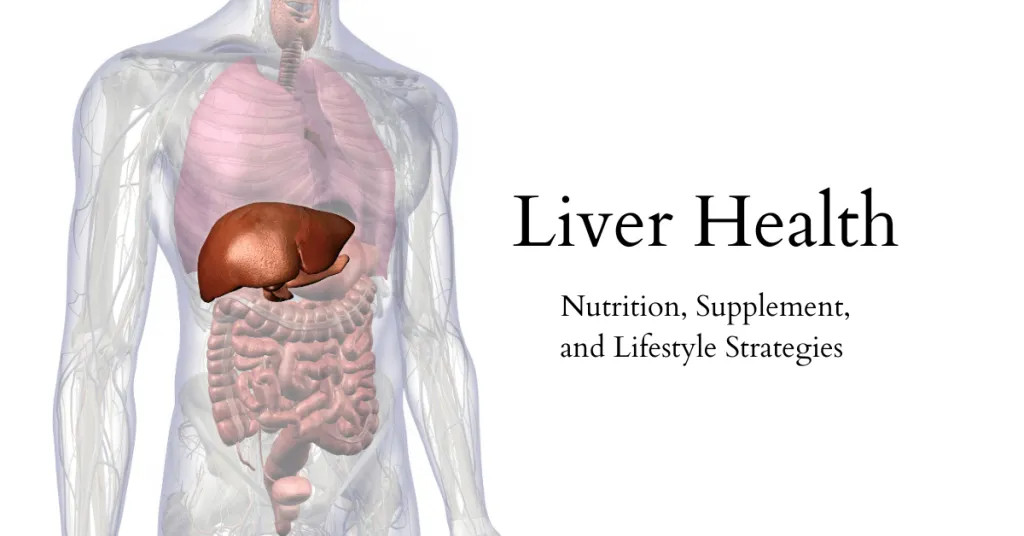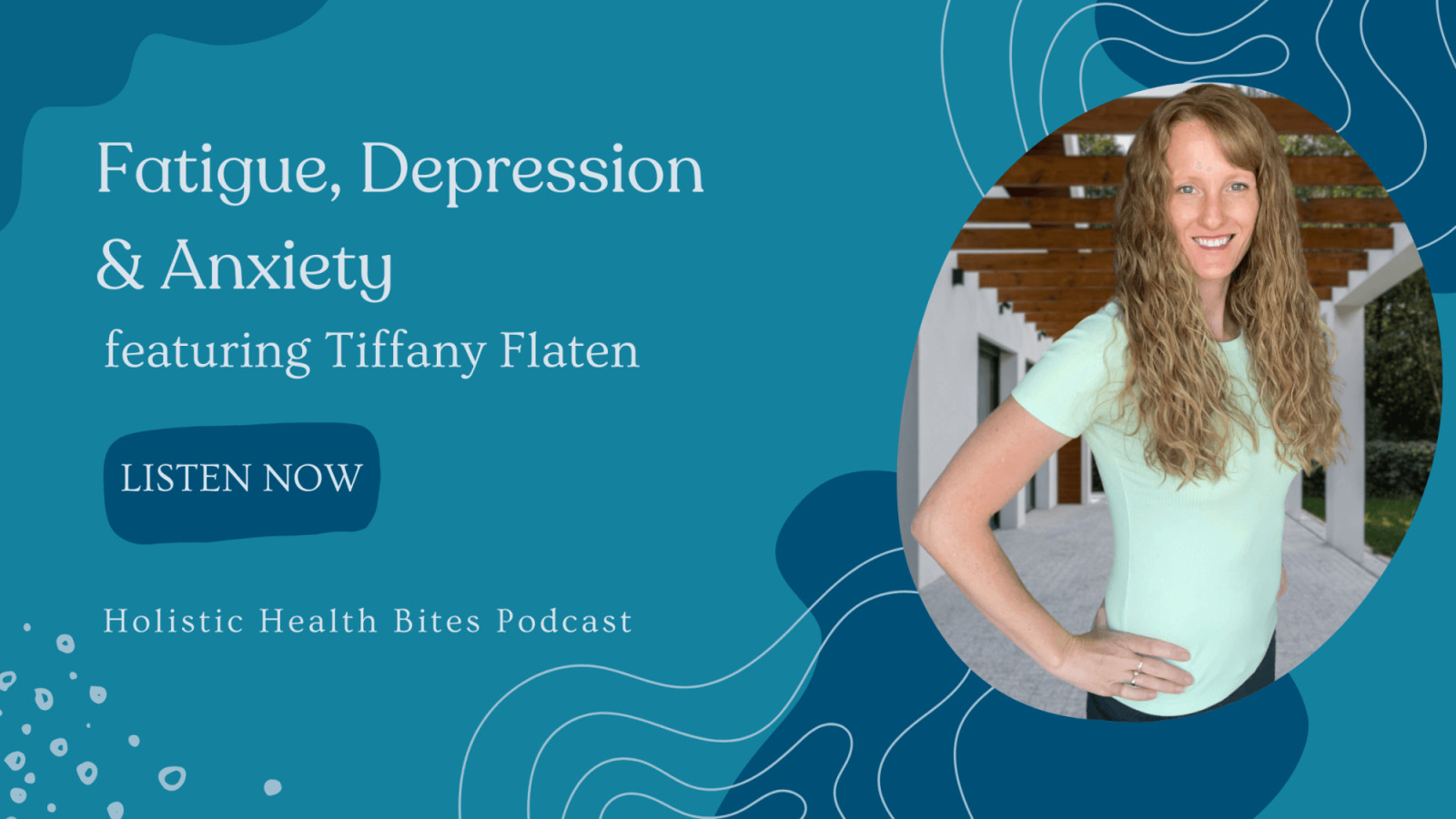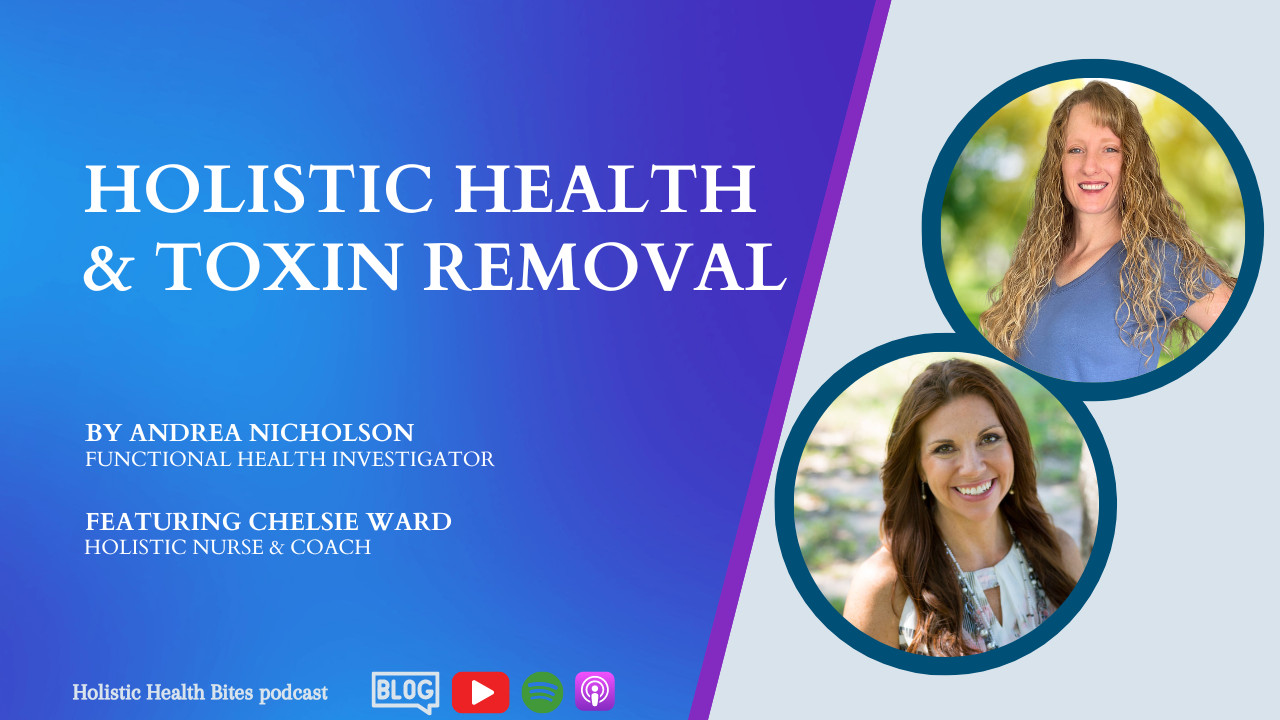
Strategies for Supporting Liver Health and Detoxification
Most of us know that the liver is used in detoxification…but did you also know that this vital organ is responsible for a lot of your metabolism, digestion, nutrient synthesis, and nutrient storage? Sadly, our modern lifestyles, highly processed foods, and exposure to toxins can place a burden on the liver, affecting its ability to perform optimally. So today, we will explore strategies for supporting liver health and detoxification to promote overall well-being. We will discuss nutrition tips, herbal and supplement recommendations, hydration, exercise, sleep, stress management, toxin identification and removal, and the potential benefits of liver health on other conditions such as blood sugar handling, skin issues, energy metabolism, and cholesterol levels.
Nutrition Tips for Liver Health
- Eliminating highly processed and refined foods is going to be key for optimal liver function.
- Emphasize a balanced diet rich in real whole foods.
- Animal proteins (meat, seafood, eggs, dairy if your body agrees with it)
- Non-starchy vegetables if your body handles them well. This would include leafy greens, cruciferous vegetables, onions, garlic, and most above-ground vegetables. These are loaded with antioxidants and many beneficial vitamins and minerals.
- Healthy fats from quality animal products and whole fatty fruits like olives, avocados, and coconut.
- Nuts and seeds can also be helpful if your body handles them well. And limited quantities of low sugar fruits (like berries) and starchy vegetables can also be a part of your whole food diet – depending on your overall health status.
- If you have blood sugar imbalances, type 2 diabetes, or insulin resistance, it would be best to avoid the higher glycemic foods.
- Contrary to mainstream recommendations, I am not a big fan of grains – even whole grains. Many people are sensitive to grains causing digestive issues, achy joints, autoimmune flares, headaches, and more. They contain anti-nutrients that can steal various minerals and nutrients from your body, and many also have plant toxins that can cause inflammation.
- Limit alcohol, as well as artificial ingredients like sweeteners, colors, preservatives, and flavors.
- Stay adequately hydrated to support liver function and promote detoxification via urination and defecation. Many of the liver’s chemical reactions also require water. Proper hydration is best done with filtered water that has minerals added in.
Herbal and Supplement Recommendations
Much like foods can provide nutrients needed for liver health, certain herbs and supplements can provide extra support for liver health and detoxification. Consider the following options:
- Milk thistle: Known for its liver-protective properties and ability to enhance liver cell regeneration.
- Dandelion root: Supports liver detoxification by increasing bile production and promoting healthy digestion.
- Turmeric: Contains curcumin, which has anti-inflammatory and antioxidant properties that support liver health.
- N-acetylcysteine (NAC): Supports glutathione production, our master antioxidant involved in liver detoxification and oxidative reactions throughout the body. Antioxidants help to reduce oxidative damage caused by oxygen or nitrogen molecules that have an unpaired electron – known as free radicals. These free radicals can come from exposures to chemicals and toxins outside of the body. They are also created during normal metabolic processes. They can cause serious damage to our tissues if we don’t have adequate antioxidants to donate an extra electron. Glutathione is our master antioxidant that provides the bulk of those electrons. NAC is the precursor to glutathione, therefore can be helpful in boosting glutathione levels.
- Alpha-lipoic acid (ALA): Acts as an antioxidant and supports liver health. The supplement may be beneficial in preventing cataracts, preventing and aiding in cancer treatment, treating Diabetes and diabetic neuropathy, as well as helping in liver disease.
- Bile acids, digestive enzymes, and stomach acid supplementation can also aid in liver detoxification. Bile acids are made in the liver, then stored in the gallbladder. They are used in emulsifying fat and digesting proteins. Digestive enzymes help to break down carbohydrates, proteins, and fats. Stomach acid is necessary for breaking down foods and killing off microbes in the stomach. Proper digestion of these foods helps the liver be more efficient at assimilating nutrients and eliminating toxins.
Exercise and Liver Health
Regular exercise can benefit liver health and detoxification in the following ways:
- Detoxification occurs through urine, feces, skin, lungs and even tears. When we exercise, we increase sweating and breathing rate, thereby helping to eliminate toxins.
- Exercise promotes blood circulation, which aids in the delivery of nutrients to the liver and removal of toxins.
- Our lymphatic system also carries a lot of our toxins. Unlike our blood vessels system, the lymphatic system doesn’t have a pump or any mechanism to force movement of those toxins. Our bodily muscles pump the lymphatic system as they contract and relax. The more you use your muscles, the more the lymphatic system moves! You can also stimulate movement of the lymphatic system with dry skin brushing, lymphatic massage, rebounder jumping, and lying with your legs elevated.
When it comes to exercise – do the kind you’ll stick with! Walking, jogging, cycling, weight lifting, yoga, kickboxing, dancing… any activity works. Aim for at least 30 minutes most days of the week. I do recommend you incorporate strength training exercises to build lean muscle mass, which can support metabolic processes and overall liver health. Your organs are all made of muscle!
Sleep and Liver Health
Sleep is vital for so many health benefits – liver health and detoxification are no exception. General recommendations are to:
- Aim for 7-9 hours of quality sleep per night to allow the body to undergo necessary repair and regeneration processes.
- Establish a regular sleep routine by creating a calming bedtime routine and ensuring a comfortable sleep environment. This can include breathing exercises, stretching, meditation, journaling, reading, listening to binaural beats, or even laying on an acupressure mat.
- Minimize exposure to electronic device screens and stimulating activities before bed to promote better sleep quality.
Stress Management and Liver Health
Chronic stress can impact overall health, with liver health and detoxification included. Consider the following stress management strategies:
- Deep breathing exercises, meditation, yoga, or other mindfulness activities.
- Engage in activities that bring joy, happiness, relaxation and feelings of safety and love. This can include hobbies, spending time in nature, connecting with loved ones or pets, and even laughing.
- Prioritize taking care of yourself and set boundaries to reduce your exposure to stress.
Identifying and Removing Toxins
The liver has a LOT to do. Let’s lighten the burden by reducing toxin exposure wherever possible. We’ll never live completely toxin-free, but we can eliminate a lot of our daily exposures by making simple choices for cleaner products.
- Take a good look at your cleaning products, personal care items, and pesticides/herbicides/fungicides you use around your home or office. Choose non-toxic or low-toxin products where possible. One of the easiest changes to make is to always opt for fragrance-free products or only use products scented with essential oils. You can also use apps like Think Dirty to check the toxin load of various personal and home care products.
- Choose organic produce and prioritize the consumption of foods low in pesticides and additives.
- Consider an air purifier or indoor plants to improve indoor air quality.
- Filter your drinking water to reduce exposure to contaminants. I have a whole home filter in my house so I know I’m drinking clean water, but I’m also using clean water for laundry, cooking, and showers.
Liver Health and its Impact on Other Conditions
Taking care of your liver can have positive effects on various other health conditions, such as:
- Blood sugar handling: A healthy liver supports proper glucose metabolism, helping to regulate blood sugar levels.
- Skin issues: Liver health is linked to skin health, and supporting liver function can improve skin conditions such as acne or eczema.
- Energy metabolism: The liver plays a vital role in energy metabolism, and optimizing its function can enhance overall energy levels.
- Cholesterol and lipid handling: the liver is where our cholesterol is mostly synthesized (we get some from foods). If the liver isn’t functioning ideally, your liver may overproduce cholesterol and lipoproteins.
Supporting liver health and detoxification is essential for overall well-being. By implementing strategies such as proper nutrition, herbal supplements, hydration, exercise, sleep, stress management, and reducing toxin exposure, we can optimize liver function and promote our overall health. Of course, I always recommend you consult with a healthcare practitioner before making any significant changes to your diet, lifestyle, or supplementation routine, especially if you have existing health conditions or are taking medications. I would be happy to give you recommendations on your best next steps. Schedule a free consultation with me to discuss your personal situation. Prioritize liver health and reap the benefits of improved vitality, enhanced well-being, and a healthier body overall.





















0 Comments